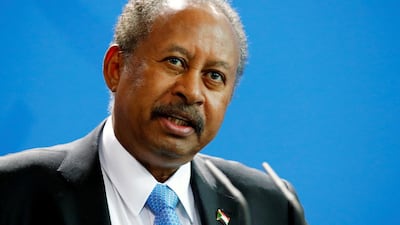By Hamza Hendawi
Sudan’s transitional government and a rebel coalition signed a landmark peace deal on Monday at the end of 10 months of often difficult negotiations, a giant yet incomplete move toward restoring peace in the vast regions of the Afro-Arab nation’s west and south.
However, two key rebel groups have yet to negotiate an agreement with the Khartoum government, thus devaluing the significance on the ground.
Monday’s deal was negotiated and signed in Juba, capital of South Sudan, a nation born nine years ago under a peace agreement that gave its mainly animist and Christian people the right to self-determination after more than two decades of war against the Arabised and Muslim north. South Sudan has had its own civil war for most of the nine years since its creation in 2011.
South Sudanese officials mediated between the transitional government and the Sudan Revolutionary Front, or SRF, an alliance of several armed groups and political groups that was part of the pro-democracy coalition that masterminded the wave of street protests that led to the removal in April 2019 of Sudanese dictator Omar Al Bashir.
Reaching peace agreements with rebel groups in the west and south of the country has been among the chief goals of the transitional government that took power in August last year, bringing together the generals who removed Al Bashir and the leaders of the pro-democracy coalition.
A power-sharing agreement set last February as the deadline for reaching agreement with the rebel groups, but the talks in Juba ran into difficulties that nearly derailed the process more than once.
In ending the rebellions, the government hopes to shift focus away from defence spending, believed to account for nearly 50 per cent of the budget, toward education, health care and upgrading the country’s collapsing infrastructure. But it will not be an easy task even with Al Bashir gone, whose war against the rebels was fought with a clear sectarian slant.
Scores have been killed in clashes between residents and pro-government militias in recent weeks in Darfur, a vast western region where 300,000 perished and more than 2 million were displaced during a ruinous rebellion that began there in 2003.
The demands of the rebel groups not included in Monday’s agreement are also virtually impossible to meet without bringing down the Muslim and Arabised political establishment that ruled the county since independence in 1956.
Monday’s signing ceremony was attended by South Sudanese President Salva Kiir, Sudanese head of state General Abdel Fatah Burhan and Prime Minister Abdalla Hamdok.
Under the deal, self-rule would be granted to the provinces of Blue Nile, south of Khartoum, and south and west Kordofan to the west and southwest of the capital. Rebels would be integrated into the armed forces. There were also agreements on transitional justice, compensation and the repatriation of civilians displaced by nearly two decades of conflict.
One of the two powerful groups that were not included in Monday’s agreement is the Sudan Liberation Movement-North led by Abdel Aziz Al Hilu, which was involved in the Juba negotiations but did not reach an agreement with the government. The second one is the Sudan Liberation Movement-Army led by Abdel Wahed Nour, which does not recognise the transitional government and refuses to negotiate.
Between them, rebels belonging to these two groups hold large swathes of territory in south Kordofan, Darfur and Blue Nile, but a cease-fire announced when Al Bashir was removed last year continues to hold, albeit precariously.
Mr Al Hilu has called for a secular state in Sudan and the revamping of the armed forces to reflect the ethnic and religious diversity of Sudan.
“Sudan will not be stable or remain united unless the relationship between the state and religion is settled. Secularism is the country’s ideal antidote and the only way out of the cycle of violence and destructive fighting,” he said in an interview with the website of his movement.
Apparently referring to the deal reached on Monday between the government and SRF, he said: “Partial solutions will only lead to the continuity of the factors leading to the breakup and the collapse of the Sudanese state.” Excerpts of the interview were published on Monday.


